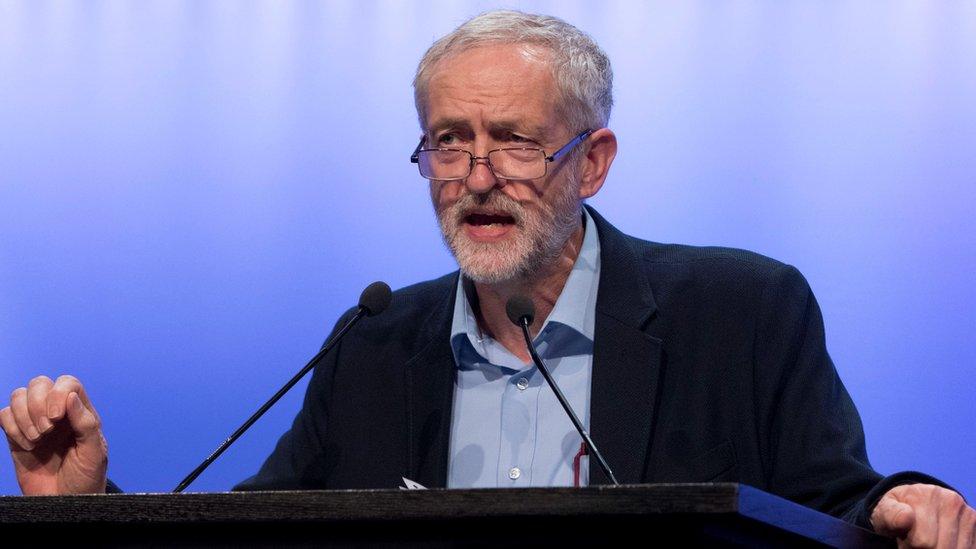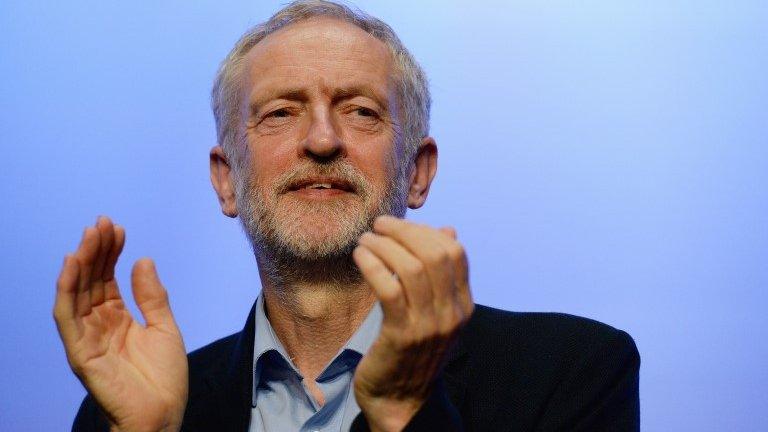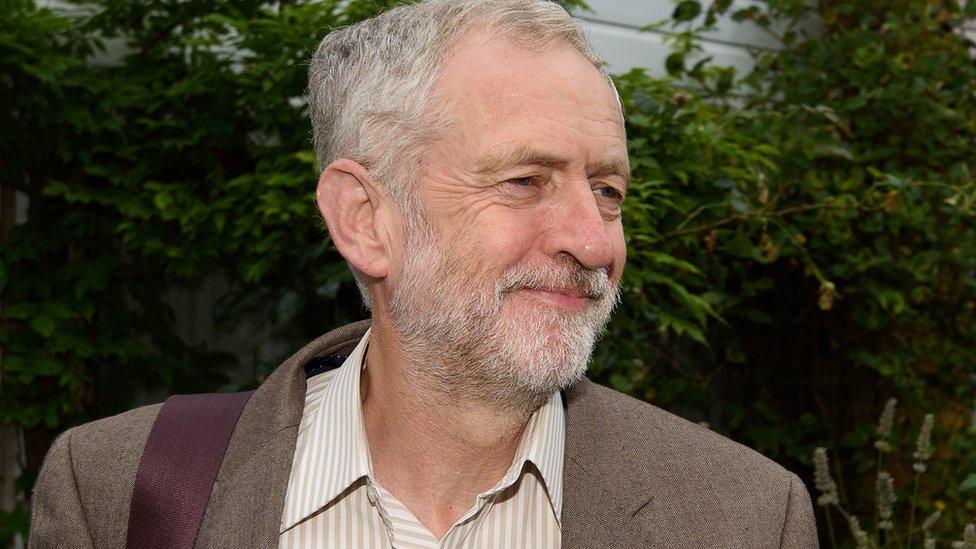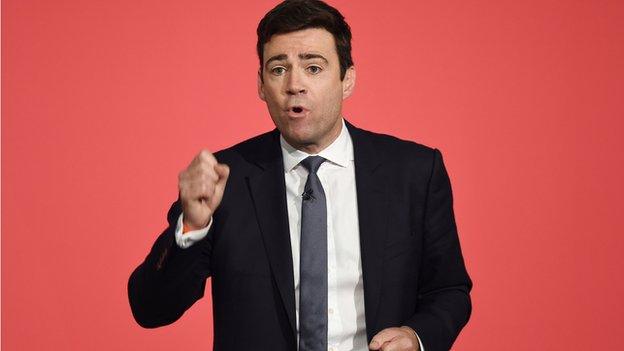Labour would renationalise railways 'line by line,' says Jeremy Corbyn
- Published

Jeremy Corbyn was elected Labour's new leader on 12 September with almost 60% of the votes
A Labour government would renationalise the railways by regaining control of franchises as they expire, new leader Jeremy Corbyn is expected to reveal.
The party is to set up a task force that will consider how to implement the plans - expected to be outlined at the party conference next week.
Mr Corbyn told the Independent on Sunday there was "overwhelming support for a People's Railway", external.
But the Conservatives dismissed the plan as an "ideological joyride".
International Development Secretary Justine Greening warned it would waste millions of pounds of taxpayers' money at a time when the railways were enjoying record levels of investment on schemes like HS2.
'Integrated system'
She told the BBC's Andrew Marr Show it was important to "get on with the plan we have in place".
But shadow foreign secretary Hilary Benn told the same programme it was the Conservatives that were being "ideological" and the recently re-privatised East Coast line had shown that publicly-owned rail could work.
He said Britain needed an "integrated transport system" without passengers having to buy different tickets for different lines.
In other developments:
Jeremy Corbyn has resigned as chairman of the Stop the War coalition but said it would "remain my cause" and it represented "the very best in British political campaigning"
His resignation comes amid criticism of a poem published on the anti-war campaign's website which said the Queen has a "criminal record" and is "lubricating Britain's wars"
Labour shadow defence minister Kevan Jones told The Sunday Telegraph, external the poem was "a slur on the Queen and will be highly offensive to members of our Armed Forces" and urged Mr Corbyn to distance himself from the "more extreme elements of the anti-war coalition"
Hilary Benn has said he disagrees with Mr Corbyn's stance on Trident and Nato. He said he was sure the Labour Party would not back unilateral nuclear disarmament at its conference
Lord Falconer told BBC's Sunday Politics he spoke to Tony Blair before accepting a seat in the shadow cabinet
Labour's newly-elected London mayoral candidate Sadiq Khan told the Mail on Sunday, external Mr Corbyn's decision not to sing the national anthem at a Battle of Britain memorial service was "unwise and disrespectful" for someone who wanted to be PM
Lib Dem leader Tim Farron is making an "unashamed land grab" for Labour voters dismayed by their new leader
Former miners' leader Arthur Scargill, in a rare television interview, tells the BBC's Len Tingle, external that Jeremy Corbyn is not left wing enough
Mr Corbyn has previously said the railways should be renationalised along with Royal Mail and has opposed the high speed railway line HS2.
The Labour leader said: "We know there is overwhelming support from the British people for a People's Railway, better and more efficient services, proper integration and fairer fares.
"On this issue, it won't work to have a nearly-but-not-quite position. Labour will commit to a clear plan for a fully integrated railway in public ownership."
Public subsidy
The incremental renationalisation policy is expected to leave around two thirds of lines privately run after the first term of a future Labour government.
Its task force will also consider rail reforms such as simplified ticketing and better integration of services with other modes of transport.
The Independent on Sunday said Mr Corbyn would make rail renationalisation Labour policy at the party's conference in Brighton on Sunday 27 September.
Labour argues an incremental approach to renationalisation, advocated by Mr Corbyn's leadership rival Andy Burnham, would be a cost-effective solution.
But Transport Secretary Patrick McLoughlin said Labour's approach was "a backwards-looking policy which would cost billions of pounds and leave less money to spend on improving services".
John Major's government split British Rail up into franchises 20 years ago.
Since then the number of passengers travelling on the railways has doubled, but the public subsidy has risen.
- Published18 September 2015

- Published17 September 2015

- Published4 August 2015
